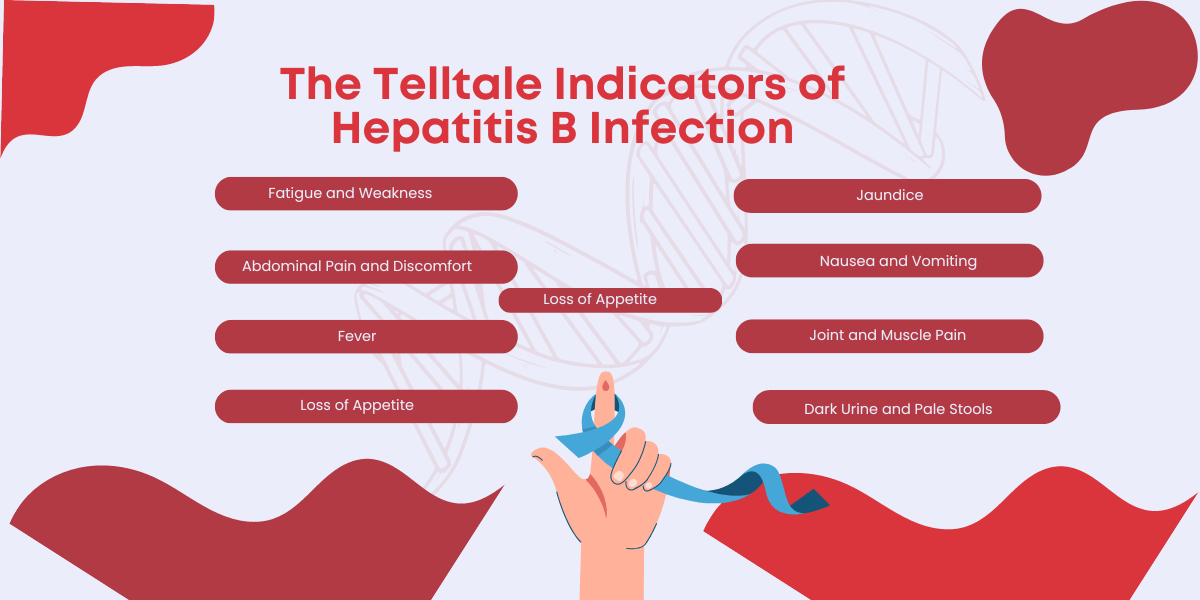Understanding Hepatitis B: Recognizing Its Symptoms
Hepatitis B is a viral infection that affects the liver and can have serious implications if left untreated. With millions of people worldwide affected by this condition, it’s crucial to be informed about its symptoms. In this article, we’ll delve into the various symptoms of Hepatitis B, shedding light on this potentially silent yet significant health issue.

1. Fatigue and Weakness
One of the most common symptoms of Hepatitis B is persistent fatigue and weakness. This can range from mild tiredness to extreme exhaustion, affecting daily activities and overall quality of life. The virus’s impact on liver function contributes to this prevalent symptom.
2. Jaundice
Jaundice, characterized by the yellowing of the skin and eyes, is a hallmark of Hepatitis B. This occurs due to the buildup of bilirubin—a waste product that the liver usually filters out. Dark urine and pale faeces are further signs of jaundice.
3. Abdominal Pain and Discomfort
Individuals with Hepatitis B might experience discomfort or pain in the abdominal region, particularly around the liver area. This pain can range from mild to severe and is often accompanied by a feeling of fullness or bloating.
4. Nausea and Vomiting
Nausea and vomiting are common symptoms in Hepatitis B patients. These symptoms can significantly impact appetite and overall well-being. Persistent nausea, particularly in conjunction with other symptoms, should not be ignored.
5. Loss of Appetite
A sudden loss of appetite is another indicator of Hepatitis B. This symptom, coupled with nausea, can lead to unintended weight loss. The virus affects the liver’s ability to process nutrients, contributing to this symptom.
6. Joint and Muscle Pain
Some individuals with Hepatitis B may experience joint and muscle pain, often resembling flu-like symptoms. These aches and pains can range from mild discomfort to more pronounced pain that interferes with daily activities.
7. Fever
Fever is a common response to infections, and Hepatitis B is no exception. A persistent low-grade fever or intermittent spikes in temperature can be indicative of the body’s attempt to fight off the viral infection.
8. Dark Urine and Pale Stools
As mentioned earlier, the buildup of bilirubin can cause changes in urine and stool color. Dark urine and pale or clay-colored stools are potential signs of Hepatitis B and should not be ignored.
9. Itchy Skin
Itchy skin, also known as pruritus, can be a symptom of Hepatitis B due to the accumulation of bile salts in the bloodstream. While it may not be present in all cases, persistent and unexplained itching should be evaluated.
Recognizing the symptoms of Hepatitis B is essential for timely diagnosis and intervention. If you or someone you know is experiencing any combination of these symptoms, seeking medical attention is crucial. Early detection and proper management can make a significant difference in the outcome of Hepatitis B, preventing further liver damage and ensuring better overall health. Remember, knowledge is empowerment when it comes to safeguarding your well-being.




